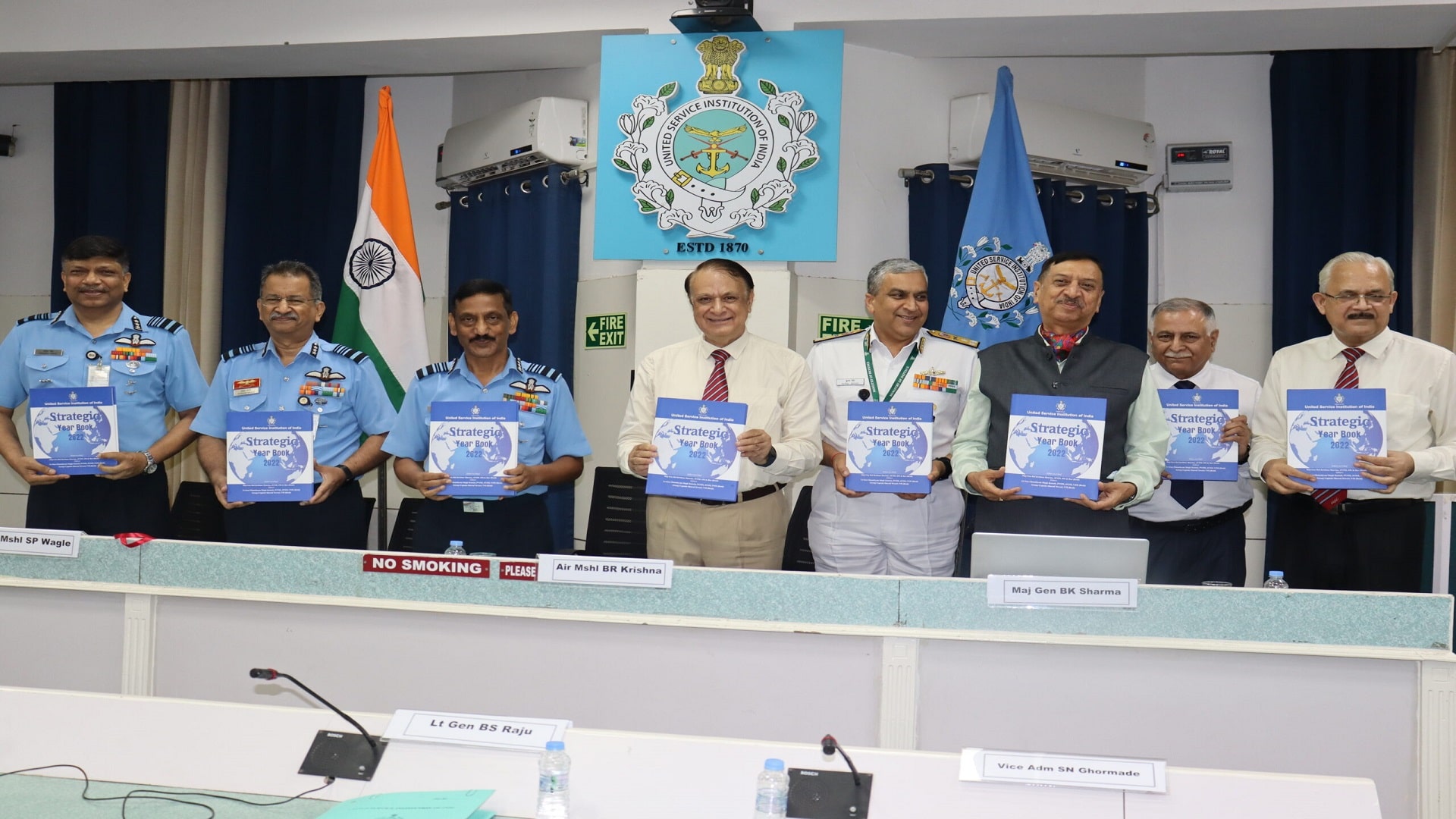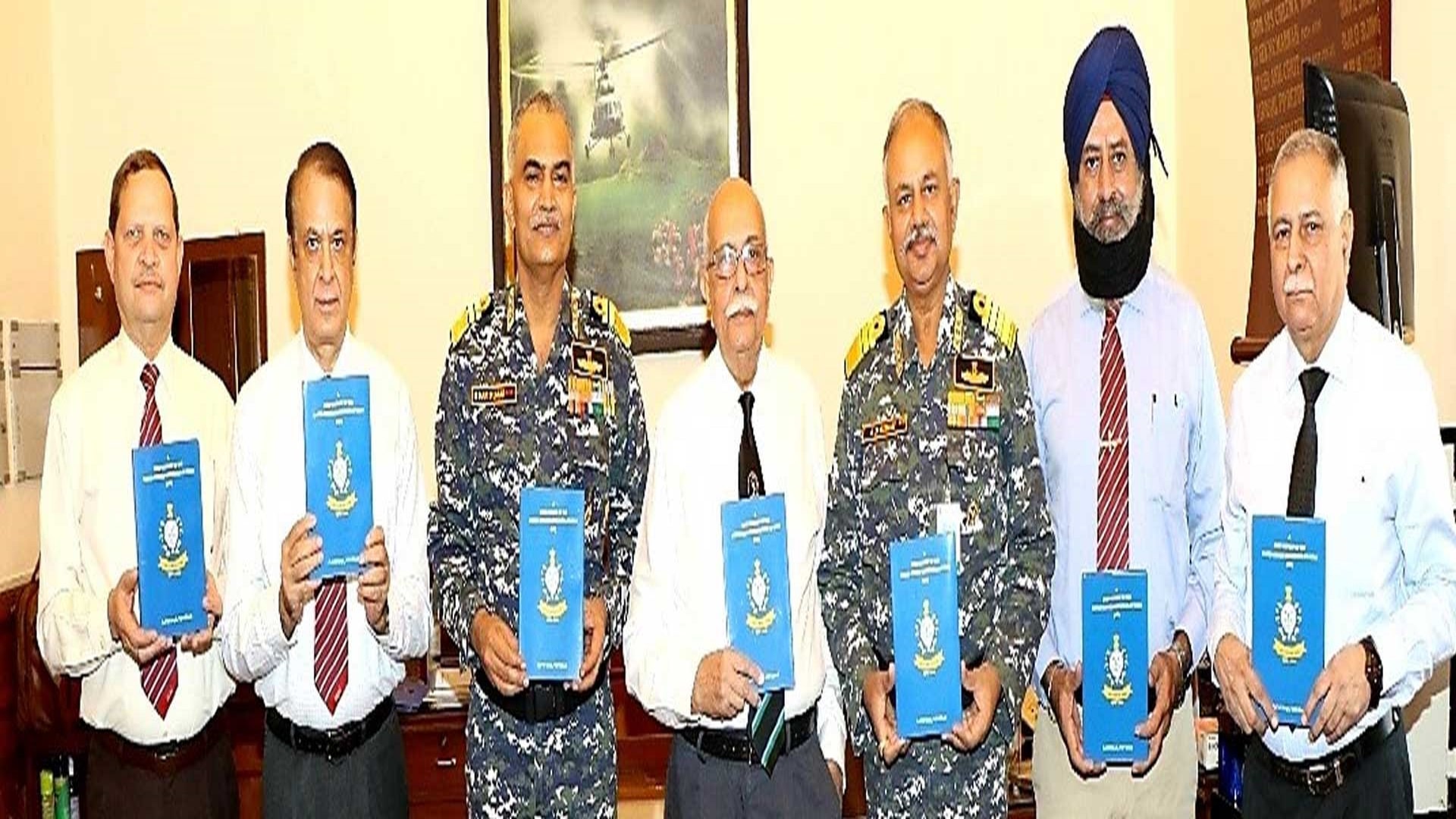

General
1. Exercise (Ex) KootNeeti was conducted for students of Higher Command Course- 46 (HCC-46) as a Strategic Gaming Ex (SGE) at Army War College Mhow on 20 and 21 July 2017. The scenario was set around the growing Sino-Pak nexus and its strategic and military implications for India.
Aim
2. The aim of the Ex was to train the students of HCC-46 in understanding the geo-political and security dynamics that impact India’s national security and necessitates evaluation of military options for use of force in furtherance of national interests.
Scope
3. The scope of the Strategic Decision Game Exercise is as under:-
- (a) Visualization of India’s national interests and strategic objectives.
- (b) Understanding the impact of evolving geopolitical and security scenarios on India’s national security.
- (c) Evaluation of Pakistan-China strategic nexus and its manifestation vis-à-vis India.
- (d) Evaluating the fault lines of adversaries and the capabilities required to exploit the same.
- (e) Analysing the strategic and military implications for India and formulating policy responses and military strategy.
Conduct
4. The exercise was conducted in the form of presentations cum panel discussions based on themes encompassing the scope outlined above.
Themes
- 5.
(a)Theme 1 – Grand Design
- (i) National Interests of China& Pak- Convergences and Divergences
- (ii) Strategic Milestones in evolution of Sino-Pak Strategic Nexus.
- (iii)Fault lines and Prognosis
-
(b)Theme 2 – Politico-Diplomatic-Economics Metrics
- (i) Dynamics of Pakistan’s internal politics & its impact on CPEC.
- (ii) External Politico-Diplomatic factors & implication for CPEC.
- (iii) Economics of CPEC: a Cost – Benefit & Risk Analysis.
-
(c)Theme 3 – Military Manifestation to include Interoperability
- (i) Assessment of Sino-Pak-Defence Cooperation to include military hardware supply & joint production, nuclear deterrence, asymmetric warfare capability, niche technology and level of Interoperability achieved.
- (ii) Spectrum of Collusive Hybrid Threats.
-
(d)Theme 4 – Strategic Implications of the CPEC.
- (i) Politico-Diplomatic aspects
- (ii) Economic aspects.
- (iii) Security – will it moderate the strategic behaviour of Pakistan or embolden it to be more aggressive?
-
(e)Theme 5 – Possible Strategic Response
- (i) Political – stand on sovereignty issues.
- (ii) Orchestration of strategic partnerships to balance the Nexus.
- (iii) Development of alternate transit and energy corridors.
- (iv) Protection of multi front dilemma for Pak & China.
-
(f) Theme 6 – Military Response Options
- (i) Develop a credible deterrence capability.
- (ii) Formulation of comprehensive full spectrum military strategy.
List of Mentors
6.USI Core Team
- (a) Lt Gen P K Singh, PVSM, AVSM (Retd) – Director USI.
- (b) Maj Gen B K Sharma, AVSM, SM** (Retd) – Deputy Director Research and Head of Centre for Strategic Studies and Simulation (CS3), USI
- (c) Maj Gen Rajiv Narayanan, AVSM, VSM (Retd)-Distinguished Fellow, CS3, USI
- (d) Maj Gen RPS Bhadauria, VSM (Retd) – Distinguished Fellow, CS3, USI and Ex Co-ordinator
Mentors
- (a) Air Marshal VK Bhatia, PVSM, AVSM, VrC & Bar (Retd) – Ex AOC-in-C
- (b) Vice Adm Shekhar Sinha, PVSM, AVSM, NM & BAR (Retd) – EX FOC-in-C
- (c) Lt Gen Vinod Bhatia, PVSM, AVSM, SM (Retd) – Ex DGMO
- (d) Lt Gen AK Sahni, PVSM, UYSM, SM, VSM (Retd) – Ex GOC-in-C
- (e) Amb RS Kalha, IFS (Retd)
- (f) Amb TCA Raghavan, IFS (Retd).
Method of Conduct
8. The exercise was conducted in the form of presentations cum panel discussions based on themes encompassing the scope outlined above. The panel comprised the USI Core team and the Mentors listed above. The course participants were organised into six syndicates; each syndicate assigned a theme for detailed study and analysis. Syndicates made a presentation for 20 minutes after which the panellists conducted a discussion with the syndicate and the rest of the course students on the theme. At the end of the Ex an ‘Open House’ was held to discuss further issue as per the themes by the panellists who also gave their expert views/opinion.
(Disclaimer: The strategic panel discussion was conceived entirely from open sources by the USI. Scenarios and situations were purely hypothetical and meant entirely and solely for teaching purposes. They did not in any way reflect official views on this topic)
Briefing of Mentors at USI


Conduct in Mhow


Presentation by the Syndicates


Panel Discussion on the Theme


Open House

Students of HCC – 46 in attendance




